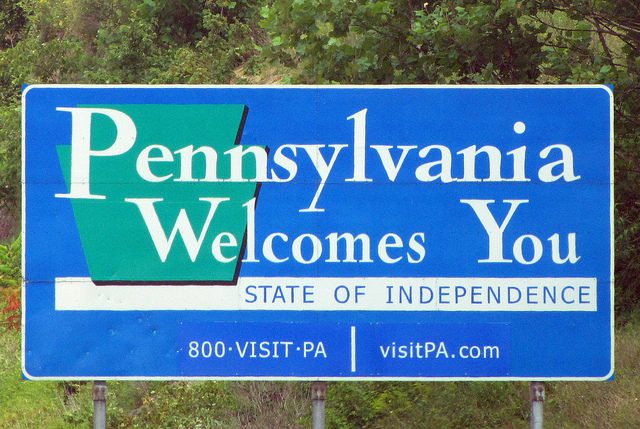
Come for the scenery but don’t stay for the broadband. (Image: Paul Hamilton)
Verizon’s lack of interest in improving broadband service in rural Pennsylvania could cause the state to lose more than $23 million in available broadband improvement funding.
For several years, Verizon has declined tens of millions from the Federal Communications Commission’s Connect America Fund (CAF). The program’s ratepayer-funded subsidies are offered to private phone companies to expand rural internet access in high cost service areas where return on investment is slow or uncertain.
In 2016, Verizon was eligible to receive $23.3 million — nearly half of the federal allotment available to Pennsylvania, but Verizon once again turned the money down. Some consumer advocates called Verizon’s decision counter-intuitive in a state like Pennsylvania where a state law requires guaranteed access to broadband to any customer who wants the service.
Instead of accepting the money to improve the company’s poorly rated DSL service, still not widely available in many rural areas, Verizon has consistently shown no interest in improving service or expanding its highly acclaimed FiOS fiber to the home service to more customers in the state.
State officials now fear the millions in available funding will instead be distributed to other states, leaving Verizon customers in Pennsylvania paying ongoing bill surcharges that will be effectively spent on improved broadband in West Virginia, New York, Ohio, and other states.
“Losing all or part of this funding would be unfair to Pennsylvania residents in rural and high-cost areas and contrary to the FCC’s goal of ensuring broadband access for all,” Sen. Bob Casey (D-Pa.) wrote in a Dec. 22 letter to outgoing FCC chairman Thomas Wheeler.
The state’s Public Utilities Commission claims there isn’t much the state can do if Verizon remains intransigent about accepting Connect America funding and the minimum speed and service obligations that come with the money.
Independent phone companies in the state including Frontier Communications and Windstream could benefit by requesting some or all of Verizon’s share of the money, but only if the companies are willing and able to invest in rural broadband expansion. In most cases, CAF funding requires phone companies to invest matching funds to collect a payout.
Verizon has significantly reduced investment in its landline/wireline networks since suspending FiOS expansion in 2010.


 Subscribe
Subscribe